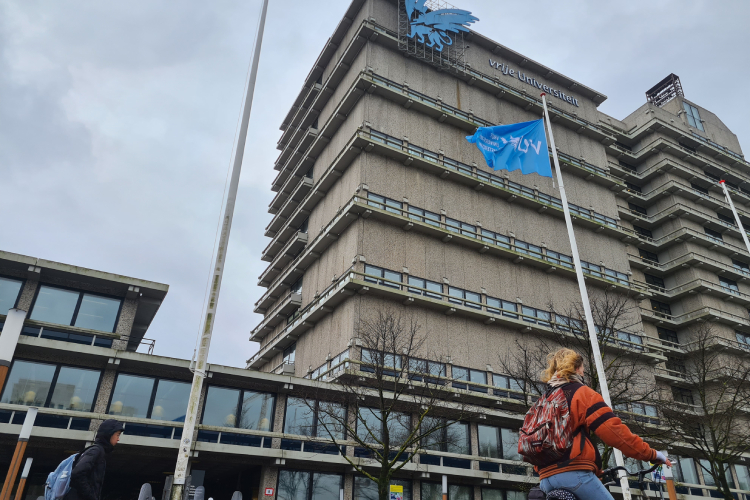Sylvia Vink, the faculty director of education of the Faculty of Social Sciences, looks back at her own student life with something of regret. “Of not having had a year abroad during my studies, it’s a very enriching experience. I think it’s important that students get a chance to go abroad. It’s so enriching to be able to experience other academic cultures.”
She finds internationalizing the VU-campus to be a win-win. “Working with international students creates a multidisciplinary classroom which gives you a completely different view and a deeper understanding of some wicked issues in social sciences.” The input of international students brings an attitude and a global scope that benefits Dutch students. Vink: “I find it very courageous of international students to move abroad. Their eagerness to learn and their curiosity is an attitude that Dutch students can learn from, in a mixed classroom.”
Global market
The faculty director is very proud of how her vision of internationalization is implemented in her faculty. “In our study programs, we allow the students to profit from such diversity.”Learning from the behavior of international students prepares the Dutch students to have better access to the global market, Vink says. And while in the classroom international students bring in multiple perspectives, outside the university, they add to the workforce. “There is a shortage of labor here, in the Netherlands.”
‘There is a shortage of labor in the Netherlands’
Of course their presence at the VU is beneficial for the international students too. “The beauty of being in another country is to learn the culture”, Vink says. “When I visit a foreign country, I’m curious and interested in other languages. So in turn, I encourage international students to learn Dutch and to learn how to ride a bike in the hectic traffic of Amsterdam.”
It’s the director’s ambition to create a more diverse faculty, by finding the right balance between Dutch and international students and the reflection thereof in the study programs. Has Vink taken into account, however, that the ever growing number of international students at the VU might come at a cost? For example, last year international students protested against what they see as a lack of effort at the VU’s behalf to help them find living space in the city.
Exponential growth
Vink explains that internationalization at the VU is the responsibility of many. “International Office takes care of the housing of students who start with their studies. My job concerns the content and the pedagogy of study programs. Diversity and internationalizing the curriculum and, for instance, involving international students in campus activities, so they can experience what it’s like to be in the participatory body of the Faculty.” It’s unclear to her what exactly the VU’s plans are regarding the exponential growth of international students. “The VU’s policy regarding internationalization relies on the needs of the programs. I think the VU cannot handle an enormous increase in the number of international students. But this is not a problem that’s specific for VU Amsterdam. It’s a national issue. In case of an extreme influx of international students, we may reconsider our admission policy towards international students.”
‘It’s a national issue. We may reconsider our admission policy towards international students’
Be that as it may, VU Amsterdam hasn’t given up on its ambitions to create more English-language tracks. Vink: “At my faculty, there is an ambition to attract more international students for some of our programs. For next year, we will launch a new communication science master’s in English because we think it’s necessary to match with the bachelor of the same name.”
Three quotes in this article, concerning the responsibilities and the policies of internationalization, have been revised in consultance with both the author and the interviewee.
